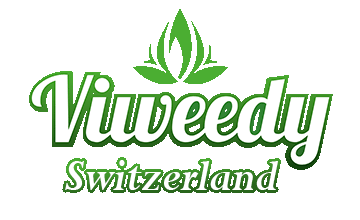Because Switzerland is the only central European country that is not a member of the EU, drug policy clocks tick a little differently there than in the surrounding countries. 25 years ago the discrepancy was even greater.
While the hunt for stoners was intensifying in neighboring Baden-Württemberg, cannabis was almost legal in Switzerland. At that time, resourceful cannabis lovers recognized a loophole in the Swiss Narcotics Act and immediately took advantage of it. This legal loophole allowed hemp enthusiasts to grow cannabis for personal or large-scale use—and even sell it.
1999: Swiss drug experts recommend legalization
Until it was reformed in 2009, the Swiss Narcotics Act (BetmG) did not differentiate between industrial and intoxicating hemp based on the THC content, but the cultivation intention was decisive for the legal status of leaves and flowers. In the mid-1990s, first in and around Zurich and later throughout Switzerland, the now legendary "Hanflädelis" emerged. There was Swiss weed and hash from indoor and outdoor stocks at moderate prices. The legal loophole made the cultivation of cannabis legal for everyone, only the further processing into drugs and the sale and consumption of the THC-containing parts of the plant required a special permit from the state.
However, it was relatively easy to get for the production of fragrances or for brewing hemp flower beer. The herbs were then sewn into jute sacks and sold as aromatherapy sachets. Customers were asked not to tear open the bags, just to sniff them. Thus, the chain from seed to finished flower was completely legal.
What you might also be interested in...
Based on a report by the state drug commission EKDF, which recommended the legalization of the consumption, trade and cultivation of cannabis in 1999, the small multinational state, which was not a member of the UN at the time, even wanted to regulate cannabis completely around the turn of the millennium. On March 9, 2001, the Federal Council passed a recommendation for the revision of the Narcotics Act. The Council of States, as one of the two legislative chambers, voted in favor of the government's recommendation with a large majority. The other chamber, the National Council (People's Chamber), was to follow later.
2002/2003: UNO vs. legalization
But from 2002, Switzerland was put under pressure by the UN. If one wants to be the last Western country to become a member, Switzerland must also adhere to the 1961 “Single Convention”. Because at that time a decision was being made about Switzerland's application for membership in the UN, one had the choice between legal cannabis or full UN membership. The big neighbors France and Germany also started to complain louder and louder about the small cannabis border traffic.
In September 2002, international pressure bowed and Switzerland became a member of the UN. Shortly thereafter, the National Council rejected the law, which was actually already believed to be certain. In 2004 the topic disappeared completely from the political agenda and criticism from all political camps rained down. Only Italy, Germany and France were happy when the Swiss police destroyed cannabis fields again after almost ten years of toleration. The hemp shops and cannabis fields slowly disappeared, only cultivation for personal use was still tolerated.
Popular initiative fails in 2008
At the same time, a strong movement was formed that forced a nationwide referendum on the legalization of cannabis in 2008. However, the financial resources of the "Federal people's initiative for a sensible hemp policy with effective protection of minors" were limited and the support of the population was not yet great enough. The initiative was rejected in December 2008 with at least 36 percent support. After the defeat, the disappointment was all the greater when the reform of the Narcotics Act two years later regulated cultivation and even the many small self-sufficient plants were suddenly illegal.
After the defeat and the reform of the narcotics law, the supporters of legalization remained in a state of shock – after all, they had slipped from the second most liberal country after the Netherlands to the lower midfield in Europe. Where once huge fields bloomed and every grow shop had cuttings in the range, even a plant was now an occasion for a police visit. Since then, seeds have also been completely banned. However, the consumption and possession of up to ten grams of cannabis in adults is no longer prosecuted, but instead subject to fines. Depending on the canton and the additional fees, they can amount to several hundred francs for smoking a joint.
Swiss industrial hemp is an intoxicating drug in the EU
Similar to the EU, the reform of the BetmG defined the legal status of the THC content. But unlike in the EU, where a limit of 0.3% applies, industrial hemp in Switzerland can contain up to 1% of the active ingredient. In the past decade, a large industrial hemp industry has developed, from which many CBD producers have emerged. Because when it comes to CBD, people in Switzerland are less keen on regulation. CBD flowers can be sold here as a tobacco substitute, dealers and customers have 100% legal certainty as long as the hemp contains less than 1% THC.
However, legal CBD joints have given Swiss drug investigators headaches ever since. Because a CBD joint looks and smells like a real one. Only experienced cannabis enthusiasts, of which there are not too many in the Swiss police force, would even be able to distinguish a CBD joint from a THC one.
2013: New wind from the big cities
But because hemp and cannabis have a much higher level of acceptance in Switzerland than in the EU, there has been strong resistance in civil society again for several years. A total of seven large cities, including Geneva, Bern, Zurich and Basel, have decided to apply for cannabis pilot projects. The Geneva professor Cattacin, who initiated the discussion in 2013 with his proposal for Cannabis Social Clubs, is in charge. The city project is divided into three areas: the medical supply, the supply to adults and the inclusion of young people with existing, problematic consumption patterns.
The idea behind this is that the young people can learn how to use cannabis in a measured and conscious way, instead of smoking weed risky. However, the tax on leisure consumption at federal level remains controversial. Since its introduction in 2013, the current fine policy has led to a veritable flood of advertisements in some cantons, which did not reduce consumption as hoped and caused massive legal problems:
2016: A loophole in the law gives hope
In September 2016, a law student who was ordered to pay a fine for possessing eight grams of cannabis was acquitted by the Zurich District Court. The accused and his legal counsel, also a law student, were probably the first Swiss to take a close look at the revised Narcotics Act (BetmG) and discover that only the consumption of cannabis can be fined. But a look at the relevant Article 19 of the BetmG confirms that the mere possession of small amounts of cannabis products of up to ten grams was wrongly fined:
Not punishable, no fine. The Zurich city judge followed this argument and acquitted the accused, according to the BetmG, the eight grams were not illegal, and there was no consumption offence. According to the Swiss BetmG, even passing on a small amount, for example as a gift, is not enough to impose a fine as long as it is not consumed.
That's what Peter Albrecht, professor emeritus of criminal law and former president of the Basel-Stadt criminal court, says about "Switzerland on Sunday". In the meantime, this legal interpretation has become widely accepted in Switzerland, possession of up to ten grams of cannabis or hashish is not punished.
2020/21: Delay in medical application
Although both chambers of Parliament had already expressed their wish in 2020 for the drafting of a legal basis for the use of medical cannabis products, implementation is still a long time coming. The competent authority Swissmedic writes:
In 2021, it appears that Swiss pharmacies will be able to dispense recreational cannabis earlier than medicinal cannabis flowers.
2022: The Swiss way is called a model project
After possession of small amounts could not be punished, both chambers of Parliament tried to find a solution. After several unsuccessful attempts, it has been part of the Swiss BetmG since autumn 2020 and is called experimental article. This addendum allows pharmacies to dispense cannabis products to adults in a controlled manner.
Specifically, the first four pilot projects are scheduled to start in Zurich, Basel, Geneva and Bern from 2022. Entrants must be over the age of 18 and a resident of the participating community. Since the pilot projects do not want to attract newcomers, the participants must already have experience with cannabis. Participants in the study are not allowed to purchase more than the monthly supply indicated above and are issued with a permit authorizing possession of the cannabis purchased at the pharmacy. The respective model projects are limited to 5,000 participants per city. The cultivation is to take place in Switzerland, whereby the active substance content of the cannabis will not exceed 20% THC. The price should be based on the black market (about 10-20 SFr/gram). After the end of the five-year pilot project, the results will be used to decide whether cannabis will be regulated at federal level in Switzerland – or not.
This plan is particularly interesting for observers from Germany. Because Switzerland has often served its northern neighbor as a pioneer for long overdue corrections to drug policy and/or the Narcotics Act (BtmG). In Germany too, model projects are repeatedly mentioned as the first step towards comprehensive regulation. Should Switzerland successfully follow this path, the chances of regulation in Germany will increase immensely.
This content was originally published here.


